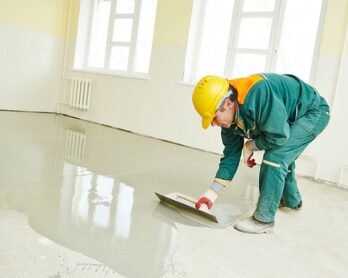How to choose the right commercial epoxy flooring?

As you may already know, epoxy flooring is a great option when it comes to residential or commercial properties. It doesn’t matter if you have a garage or restaurant, epoxy is the way to go. A good commercial epoxy flooring melbourne should be at least 2mm thick and applied in multiple coats. This can provide a durable and seamless surface that comes with a great appearance and easy cleaning routine. Continue reading to learn more about how to choose the right commercial Epoxy Flooring Melbourne for your needs!
Check the epoxy flooring thickness
Another factor you should consider when choosing epoxy flooring is the thickness of the product. Epoxy floors are generally 2mm or more in thickness but they can be up to 4mm. If you have a large space to cover, then thicker epoxy floors like 3mm and 4mm will be necessary. However, if you have a smaller area that needs covering, then 2mm will be sufficient for your needs.
Keeping these factors in mind when choosing commercial epoxy flooring melbourne for your business or home will help ensure that you make an informed decision about which product is right for your needs and budget.
Epoxy coatings can be applied over concrete, wood and many other types of substrates.
Epoxy coatings can be applied over concrete, wood and many other types of substrates. The epoxy coating will bond to the substrate, but will not penetrate it. This means that the substrate must have a porous surface for the epoxy to adhere to. Epoxies are able to bond with most materials as long as they are porous. Some materials such as glass can be coated with a high-build epoxy and then sanded down after curing has occurred in order to achieve an exact smooth finish on non-porous surfaces such as glass.
Apply a test patch first.

Before you apply epoxy flooring to your entire space, it’s best to test the product in a small area. The purpose of this is two-fold: one, it will allow you to ensure that the product will meet your needs and be durable enough for your intended use; and two, it allows you to get an idea of how much time/effort will be needed during installation.
The size of the test patch depends on what kind of substrate is being tested (concrete or wood) and whether or not there are any additional steps required before applying epoxy flooring over top (e.g., cleaning). For example, if you plan on testing over concrete but not adding anything else beforehand then simply choose a small area on which nothing has been placed yet; whereas if there is already something covering up part of the surface then make sure that area won’t be too noticeable when doing so.
Ask your contractor if you need primer or not before installing the whole floor.
If you are planning to install epoxy flooring over a different substrate, such as concrete or wood, it’s important to know if you need a primer.
If your contractor tells you that no additional preparation is needed, then the coating will bond well with the original surface. If they tell you that primer is required, they’ll probably also recommend one or more of these products:
- Epoxy primer (this can be used as an alternative to polyurethane)
- Acrylic-based polyurethane (for floors that are going to be used for heavy industrial purposes)
- Water-based polyurethane (this will adhere well even if there are gaps in the substrate)
Now you should understand the benefits and drawbacks of epoxy flooring melbourne for your business. The next step is to contact a professional and licensed contractor who can advise you if epoxy is right for your specific needs.


